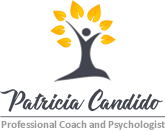
Vocational Guidance
Choosing a career can be a challenge for many young people and adults. After all, one often finds the difficult task of deciding between a passionate vocation and the pragmatism of job market demand. Vocational guidance then emerges as an essential process to support this decision, providing both self-knowledge and more assertive guidance for the future.
Vocational guidance goes far beyond simply choosing a profession. It involves the perception of skills, abilities, desires and personal expectations, which combined with specific methods and techniques, can build a successful career.
In this way, self-knowledge reveals itself as a crucial tool in this process, demonstrating a significant correlation between self-knowledge and future professional satisfaction. Therefore, with the purpose of addressing these points, as well as the importance of professional choice and how vocational guidance can influence the future, I invite you, dear reader, to delve into this article.
What is Vocational Guidance?
How does vocational guidance work?
Vocational guidance is conducted by specialized professionals, such as psychologists or educational counselors. The process generally involves different stages, which may include individual interviews, psychological tests, professional profile analysis, research into different areas of activity and exchange of experiences with professionals already established in certain careers.
During career guidance, the professional helps the individual to explore their own skills, interests and values, as well as offering relevant information about different careers and study opportunities. In this way, the objective is for the individual to be able to make a more informed and appropriate decision regarding their professional future.
Who can benefit from career guidance?
Anyone who is in the process of choosing a career can benefit from vocational guidance. This includes high school students seeking a degree, college students looking to change majors or careers, professionals transitioning careers or seeking greater satisfaction in their current job.
Career guidance can also be useful for those who are confused about which path to take or who want to explore new possibilities within their field.
Benefits of vocational guidance
Career guidance is an important tool that aims to help individuals discover which professional career is best suited for them. Using specific techniques and resources, this process helps identify each person’s interests, skills and abilities, providing a solid basis for decision making.
Self-knowledge and clarity in choices
One of the main benefits of vocational guidance is the development of self-knowledge. By going through this process, individuals have the opportunity to explore their own characteristics, values and preferences, better understanding themselves. This is essential so that they can make conscious decisions that are aligned with their true passions and desires.
With self-knowledge also comes clarity in choices. Career guidance helps eliminate doubts and uncertainties, providing a broader view of career possibilities. Thus, individuals are able to identify which professional areas best fit their profiles, allowing them to follow paths that are aligned with their interests and skills.
Expanding horizons and discovering new areas
Another important benefit of vocational guidance is the possibility of expanding horizons. Individuals often have a limited view of available careers, focusing only on the most popular or well-known options. Vocational guidance allows them to discover new areas and professions, expanding their perspectives on the job market.
Through this process, individuals have the opportunity to explore different possibilities, learning about the demands and characteristics of each career, as this contributes to the discovery of new interests and the consideration of options that had not previously been considered.
Better fit between individual and career
A fundamental aspect of career guidance is the fit between the individual and the chosen career. By knowing their characteristics and preferences, individuals can identify the professional areas in which they have greater potential for fulfillment and satisfaction.
This adjustment is essential for building a successful and satisfactory professional trajectory. When individuals are in a career that is in harmony with their skills and interests, they are more likely to feel fulfilled and engaged at work, which contributes to their personal and professional development.
Reducing stress and professional dissatisfaction
The lack of vocational guidance can lead to inappropriate choices, which result in high levels of stress and professional dissatisfaction. Often, individuals end up following paths that are not aligned with their true passions and abilities, which can generate a feeling of discontent and frustration over time.
Career guidance can help avoid this scenario, helping individuals make better career decisions. By identifying the areas that best fit their profile, individuals can avoid wrong choices and, consequently, reduce stress and professional dissatisfaction.
Success and personal fulfillment
Vocational guidance contributes to success and personal fulfillment. When individuals are engaged in a career that is in tune with their interests and skills, they are more likely to achieve good results and achieve professional success.
Furthermore, personal fulfillment is also directly linked to choosing an appropriate career, because when individuals feel fulfilled and satisfied with the work they do, their quality of life as a whole benefits.
Methods and techniques used in vocational guidance
For vocational guidance to be effective, different methods and techniques are used by professionals in the field. In this topic, some of these methods and techniques will be explored.
Assessment of skills and interests
One of the main topics covered in vocational guidance is the assessment of the advisee’s skills and interests. Through tests and questionnaires, it is possible to identify the individual’s areas of interest, skills and competencies. In this way, this assessment contributes to understanding the areas in which he or she can excel and find greater professional satisfaction.
Individual interviews
They are one of the most used techniques in vocational guidance. During these conversations, the advisor has the opportunity to get to know the student better, explore their experiences, expectations and challenges. This exchange of information is essential to identify possible professional paths that are suitable for the individual’s profile.
Visits to educational institutions
A very effective technique in vocational guidance is visiting educational institutions. These visits allow the student to learn about different courses, curricula, environments and career possibilities. This way, he or she can experience in a more concrete way what it would be like to study and work in the area of interest.
Mentoring and lectures
Mentoring and lectures promoted by professionals from different areas are also valuable resources in vocational guidance. These experiences allow the student to learn more about different professions, hear real reports from working professionals and ask questions about the job market. Therefore, this interaction provides a broader and more realistic overview of the professional options available.
Accompaniment and emotional support
In addition to the techniques mentioned, another important aspect is the monitoring and emotional support offered by the advisor. This type of support is essential to help the student deal with any doubts, fears and insecurities related to their professional choice. The advisor helps with reflection and decision-making, taking into account the emotional aspects involved in this process.
Guidance based on values and life purpose
A method that is gaining more and more prominence in vocational guidance is the one that takes into account the values and life purpose of the person being advised. In this sense, the focus is not just on choosing a career, but on finding greater meaning in professional life. Therefore, evaluating the values that guide the individual’s decisions and how they can contribute to society are aspects that can guide the choice and bring greater satisfaction in the professional field.
Therefore, through these methods, the aim is to provide a complete guidance process, which allows the client to make a conscious decision aligned with their identity and personal aspirations.
How can vocational guidance influence the future?
Career guidance is an important process that can have a significant impact on people’s future.
Influence on professional future
Vocational guidance plays a fundamental role in building a person’s professional future. By helping individuals identify their skills and interests, it helps them choose a career that is rewarding and stimulating. Furthermore, vocational guidance can help to avoid wrong choices, reducing the chances of constant career changes and providing a solid foundation for the development of specific skills and competencies.
Importance of vocational guidance in education
Career guidance also plays an important role in education. It helps students choose courses of study that are aligned with their skills and interests, promoting better use of the time and resources invested in education. Furthermore, career guidance can help reduce school dropouts, as students will be more engaged in courses that are related to their future aspirations.
Thus, guidance is an essential process to help individuals make more assertive career choices. By identifying skills, interests and values, it allows people to find a career that is rewarding and aligned with their future expectations. Therefore, career guidance plays a significant role in shaping each person’s professional future.
Therefore, career guidance is likely to be a powerful means of pursuing a successful career. The importance of this guidance cannot be underestimated, as it acts as a link between professional choice and the mastery of self-knowledge. Thus, vocational guidance is not just a method for choosing a profession, but above all, a tool that significantly influences a person’s entire professional trajectory.
Error: Contact form not found.
More services

Coaching
The coaching process directs the person to the possibility of eliminating unproductive habits, becoming independent, motivated, proactive and prepared to take control of their own life.

Cognitive Behavioral Therapy combined with Positive Psychology
It works on emotions, cognitions, behaviors and interpersonal relationships equally by proposing goals and emphasizing the possibility of change and its proactive aspect.

Psychotherapy
Psychotherapy is a type of therapy whose purpose is to treat psychological problems, such as depression, anxiety, relationship difficulties, among other mental health problems.

Vocational Guidance
Evaluate, analyze, clarify and inform your areas of interests, specific and general skills, which are included in your possibilities.

